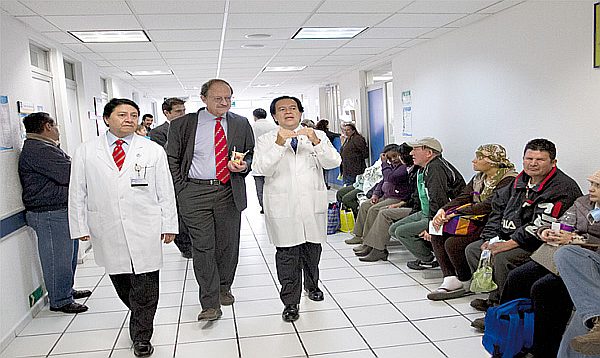Mexico City, Mexico – Federal Secretary of Health Salomon Chertorivski Woldenberg said on Saturday that 75 percent of deaths in Mexico are caused by non-contagious chronic illnesses, and that life expectancy rates in Mexico will fall if these perennial illnesses are not controlled.
Chertorivski Woldenberg spoke at the 'Medicine of the Future: Towards a Longer Life Expectancy' forum in Tijuana, Baja California. In his speech he stated that "75 percent of all Mexican deaths are due to non-communicable chronic diseases, particularly diabetes, cancer, and cardiovascular ailments. Current health trends," he said, "indicate that this state of affairs will continue for several years."
"If we do not deal with smoking, obesity, and in general, all non-communicable chronic diseases, then we will not be able to continue making progress on life expectancy rates, which on average is 76 years for Mexicans," the health secretary warned.
Chertorivski Woldenberg said that "in 1910, Mexicans lived an average of 27.4 years, while today most Mexicans live to nearly 80. In other words, life expectancy has tripled in a century," he said, "thanks in part to more sanitary conditions and vaccination programs."
"However," he said, "by 2040 one in four Mexican citizens will be over 60 years old, and if left unchecked, the prevalence of non-communicable diseases will negatively impact life expectancy in this country."
During the 'Towards the Standardization of Health Services' panel, the federal official said that "advances in medicine, robotics, and innovative surgical devices will allow doctors to conduct medical procedures with greater accuracy, helping to increase life expectancy."
He said that if various medical developments and new technologies are combined, life expectancy in Mexico could rise to 100 years. "If we effectively align the regimens, we are talking about a life expectancy of 150 to 200 years in 2040, and this is real and it is already happening."


